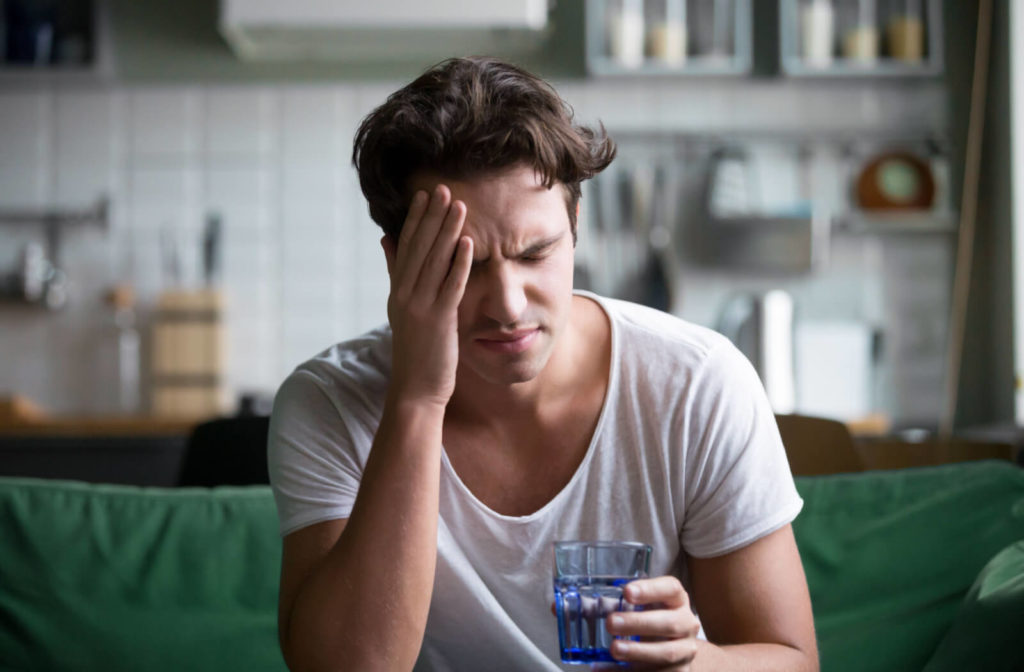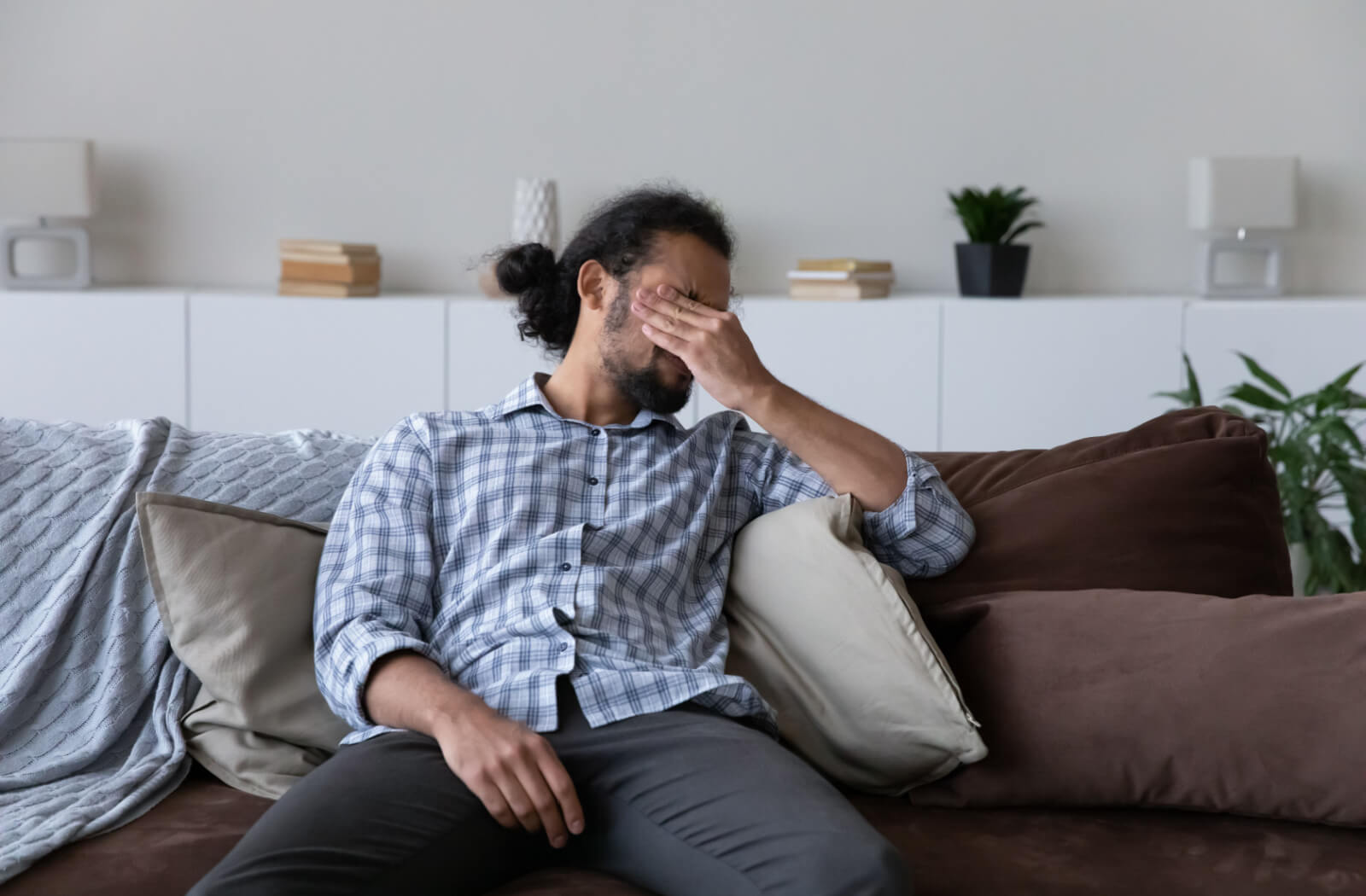Alcohol is common at social gatherings, casual nights out, or for a celebratory toast for many people. However, it is worth considering the impact of drinking on your body, particularly your eyes.
One such consequence of alcohol is dry eyes, which can significantly disrupt eye comfort and overall eye health. If you experience symptoms of dry eyes, such as a gritty feeling, redness, or blurry vision, visit an eye doctor for a timely diagnosis and treatment.
What Is Dry Eye?
Dry eye disease occurs when the eyes don’t produce enough tears or when the quality of tears is compromised. Tears are essential for maintaining eye comfort and health, as they help to lubricate the eyes, wash away debris, and prevent infections.
Insufficient or poor-quality tears can cause the following dry eye symptoms:
- A scratchy or gritty feeling in your eyes
- Stinging or burning sensation
- Red eyes
- Light sensitivity
- Blurry vision
Several causes of dry eyes can affect tear production or quality and increase tear evaporation. Causes can include:
- Medications
- Age
- Health problems
- Environmental factors
- Drinking alcohol can also be a contributing factor

Dehydrating Effects of Alcohol
Alcohol is well-known for its dehydrating effects on the body. Since alcohol is a diuretic, it can lead to more fluid loss than intake
Dehydration from alcohol can happen from:
- Drinking on an empty stomach: Without sufficient food in the stomach to absorb the alcohol, it goes straight into the bloodstream, leading to dehydration.
- Appetite suppression: In large quantities, it can suppress appetite. Since you are less likely to eat while drinking alcohol, it gets absorbed faster.
- Kidney function: Alcohol disrupts kidney function, affecting electrolyte and fluid balance and reduces fluid retention in the body.
Signs of mild to moderate dehydration can include the following:
- Thirst
- Headache
- Dark urine
- Dizziness
- Delirium
- Fainting
Alcohol & Dry Eye
Dehydration can extend to various parts of the body, including the eyes. While the short-term effects of alcohol affect temporary disturbances to your vision, the long-term effects of heavy drinking can lead to dry eyes.
Dehydrated eyes are more prone to dryness, as the tear film that protects the eye’s surface becomes unstable due to the lack of moisture. Additionally, alcohol’s diuretic properties can disrupt the balance of electrolytes in the body, affecting tear composition and further exacerbating dry eye symptoms.
How Alcohol Can Impact Your Tears
Tear production is a finely tuned process that involves coordination between various glands in and around the eyes. Alcohol can interfere with this process by affecting tear gland function.
Some research suggests that alcohol consumption can reduce tear film volume, a disturbed tear film structure, and a deteriorated tear film, leading to inadequately lubricated eyes. This reduction in tear production and quality can contribute to the discomfort associated with dry eyes, such as a gritty or burning sensation.
Alcohol & Vitamin A Deficiency
Vitamin A plays a crucial role in maintaining eye health, as it contributes to the production of a protein called rhodopsin that helps you see in low-light conditions. Excessive alcohol consumption may deplete the body’s stores of vitamin A, potentially impacting visual health.
A deficiency in vitamin A would cause changes to the mucous membranes in some parts of the eyes, such as the cornea (the clear outer layer of the eye) and conjunctiva (the thin membrane that protects the eye), which can contribute to some causes of dry eye disease.
Treatment for Alcohol-Related Dry Eye
The treatment for vision problems related to alcohol consumption can vary based on individual cases. Your eye doctor can determine the underlying cause or recommend reducing alcohol consumption to reduce your risk of dry eye disease and other effects.
Other things you can do to prevent dehydration include:
- Drinking water alongside alcoholic beverages to help counteract some dehydration caused by alcohol.
- Consuming foods rich in essential nutrients, including vitamin A, to support overall eye health.
- Practicing good eye hygiene, such as using preservative-free artificial tears at least twice a day. This can go a long way in preventing and managing dry eye symptoms.
Maintain Your Ocular & Overall Health
While raising a glass and enjoying a drink may add to a social experience, long-term alcohol consumption can have consequences for our eyes.
To maintain healthy eyes and overall health, reduce your consumption of alcohol and make sure you stay hydrated. If you’re experiencing dry eye symptoms, find an eye doctor at MyDryEye for a proper diagnosis and treatment plan.

























